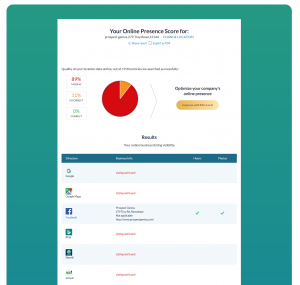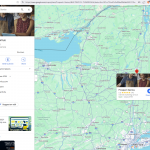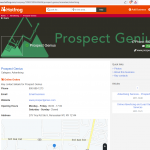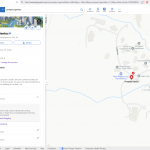We’ve been hearing a lot of chatter lately from our clients about a sneaky new scam making the rounds, and it’s time we shine a big ol’ spotlight on it.
Here’s the setup:
You, a small business owner, get a call. The person on the other end – often with an overseas accent – says they’re offering you “full ownership” of your Google Business Profile (GBP) for a one-time payment. Sometimes it’s $300, sometimes a little more or less. They’ll promise you sole ownership, the ability to delete any reviews you don’t like, and full control over your listing.
Sounds official, right? Maybe even a little tempting?
Don’t fall for it.
Let’s break down why this is 100% a scam and what you actually should know about your Google Business Profile.
1. Google Business Profiles are always free
You do not have to pay to claim, manage, or use your GBP. Google offers this service to business owners completely free of charge. Anyone asking for money in exchange for “ownership” is either confused or trying to rip you off.
2. You can’t “own” your GBP the way they say you can
The terminology these scammers use is misleading at best. While you can claim your GBP and become the primary owner (which gives you full control), that process involves verifying your business – not sending someone your credit card info.
Think of it like your social media account: you sign up, prove it’s yours, and manage it as you see fit. But it’s still hosted by a platform (Google) that has its own rules and systems.
3. “Sole owner” is a made-up title
This is where the scammers get clever. They’ll toss around the term “sole owner” like it’s some kind of premium status. In reality, a GBP has one primary owner, and that person can assign managers or additional owners if they want to. But that’s a management structure – not a tiered payment system. You either have control of your profile or you don’t.
4. You cannot delete reviews just because you don’t like them
This is one of the juiciest promises scammers dangle – “Give us a few hundred bucks and you can remove any bad reviews you want.” Not true. Google has clear policies about reviews, and the only way one gets removed is if it violates those policies. Owning or managing your GBP doesn’t change that.
So, what can you pay for?
It’s completely valid to hire someone to help you recover access to a lost profile, optimize your listing, or manage your local SEO. That’s like hiring a lawyer to handle paperwork or a plumber to fix your leak – you’re paying for expertise, not for something that’s supposed to be free.
But you should never pay someone just to “own” your GBP. That’s like someone selling you the title to your own house after you’ve already moved in.
Final thoughts
Scams like these rely on confusion, urgency, and a bit of fear. They target hardworking business owners who are too busy running their companies to double-check every call that comes in.
So let’s keep it simple:
If someone says you have to pay to own your Google Business Profile, hang up.
If you’re ever unsure about a call or email like this, reach out to someone you trust – your marketing team, your web agency, or even a savvy friend.
We’ll be back with more ScamWatch tips soon. Until then, stay sharp out there.







